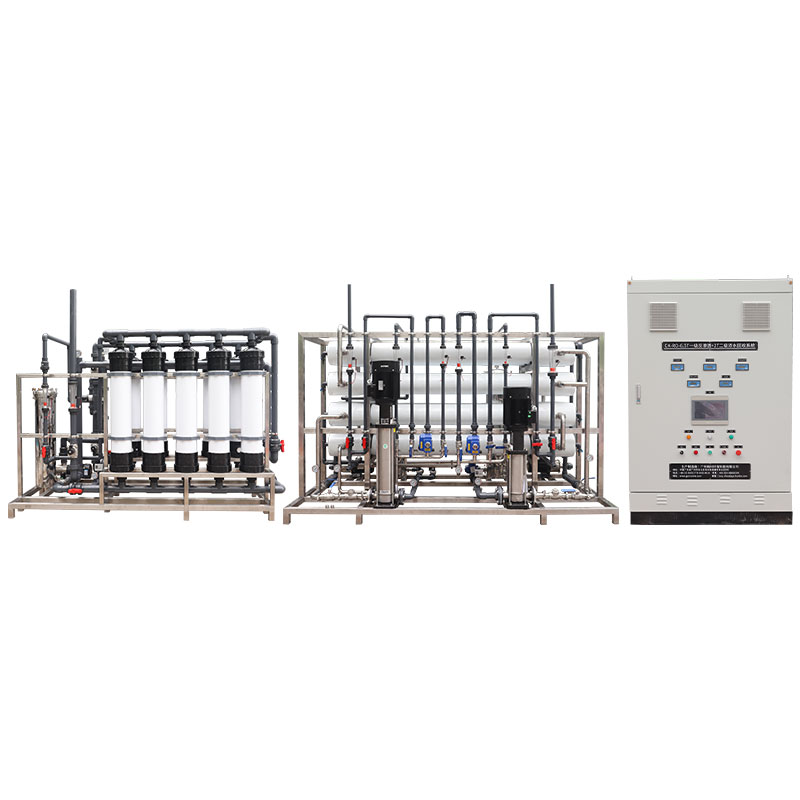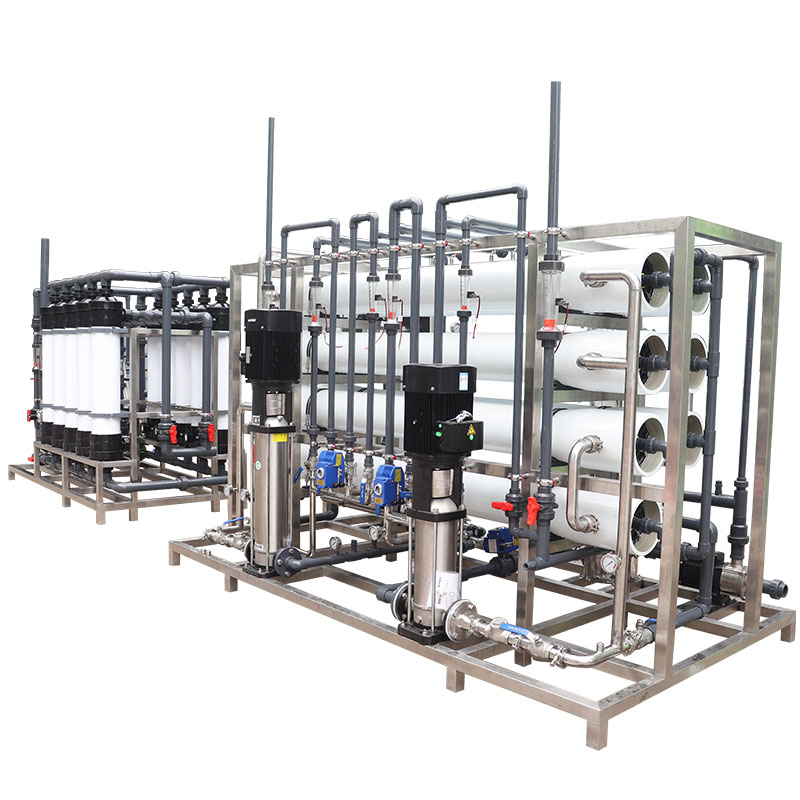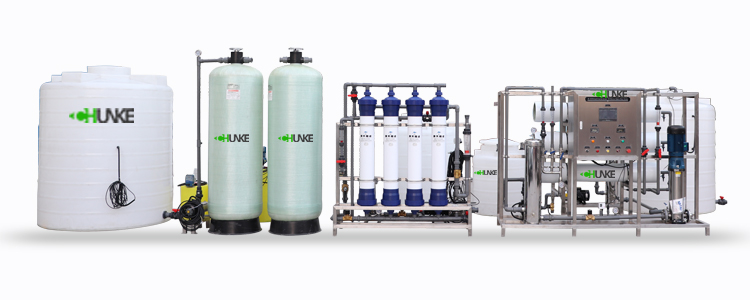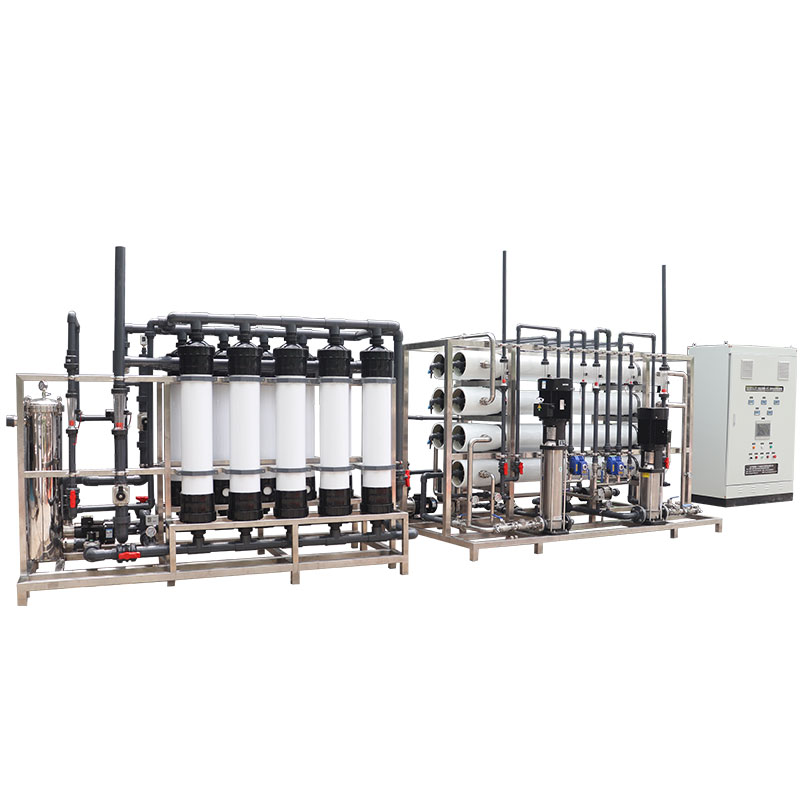How much water pressure does a water filtration system need?
In modern society, water filtration systems have become one of the important equipment to ensure the quality of drinking water. Whether it is a small water filter for home use or a large water treatment equipment for industrial use, it relies on a certain water pressure to achieve water filtration and purification.
How much water pressure does a water filtration system need? What should its standard pressure be? This article will explore these issues in depth and analyze the specific requirements of different types of water filtration systems in terms of water pressure.

What is the basic principle of a water filtration system?
The main function of a water filtration system is to remove impurities, microorganisms, and harmful chemicals from water through various filter materials and filtration technologies. Different types of water filtration systems include physical filtration, chemical filtration, biological filtration, and composite filtration. The operation of these systems requires a certain amount of water pressure to push water through the filter material to achieve a purification effect.
What is the water pressure of a water filtration system?
Water pressure refers to the pressure exerted by water per unit area, usually expressed in Pascals (Pa) or pounds per square inch (psi). The water pressure requirements of a water filtration system depend on its design and the type of filter material used. Generally speaking, domestic water filtration systems require lower water pressure, while industrial water filtration systems require higher water pressure to handle larger water volumes and more complex water quality issues.
How much water pressure does a water filtration system require? What should its standard pressure be?
1. Domestic water filtration system:
Domestic water filtration systems include countertop water filters, faucet water filters, and reverse osmosis (RO) systems. The following are the basic requirements for water pressure for these systems:
● Countertop water filters: Usually connected to the kitchen faucet, the required water pressure is generally between 20-100 psi. Most countertop water filters can operate normally under standard household water supply pressure (40-60 psi).
● Faucet water filters: Similar to countertop water filters, the water pressure requirements of faucet water filters are usually between 20-100 psi, and standard household water supply pressure can meet their operating needs.
● Reverse osmosis (RO) system: Because it needs to pass through a semi-permeable membrane to remove dissolved solids and microorganisms in water, the RO system has higher water pressure requirements. Typically, a domestic RO system requires 40-80 psi water pressure to operate properly, and the optimal operating pressure is around 60 psi.
2. Industrial water filtration system:
Industrial water filtration systems include large RO systems, ultrafiltration (UF) systems, and nanofiltration (NF) systems, which usually require higher water pressure to process large amounts of water and remove more pollutants.
● Large reverse osmosis (RO) system: The water pressure requirement for industrial RO systems is relatively high, usually between 150-300 psi. Some special application scenarios such as seawater desalination can even require a water pressure of 800-1000 psi.
● Ultrafiltration (UF) system: The UF system is mainly used to remove suspended matter, bacteria, and viruses in water, and its operating pressure is usually between 30-90 psi. Industrial UF systems may require higher water pressure to process larger volumes of water.
● Nanofiltration (NF) system: The filtration accuracy of the NF system is between RO and UF, and is mainly used to remove divalent ions and organic matter in hard water. Its operating pressure is generally between 70-150 psi, depending on water quality and treatment requirements.

What are the effects of water pressure on water filtration system performance?
Water pressure has a direct impact on the performance of water filtration systems. Insufficient water pressure may cause a decrease in water flow, poor filtration effect, or even the system cannot operate normally. Excessive water pressure may damage the filter material and system components, shortening the life of the equipment. Therefore, maintaining proper water pressure is essential for the efficient operation of the water filtration system.
1. The impact of insufficient water pressure:
● Decreased water flow: Insufficient water pressure will cause a decrease in water flow, affecting the filtration speed and effect, especially when using an RO system, which may not produce enough permeate water.
● Poor filtration effect: Low water pressure may cause the filter material to not function fully, reduce the pollutant removal rate, and fail to effectively improve the water quality.
● System cannot operate normally: Some water filtration systems, such as RO systems, require a certain amount of water pressure to push water through the semipermeable membrane. If the water pressure is insufficient, the system may not operate normally, resulting in substandard water quality.
2. Effects of excessive water pressure:
● Damage to filter materials and system components: Excessive water pressure may cause filter materials and system components to be subjected to excessive pressure, resulting in damage or leakage.
● Shorten equipment life: Long-term operation under high pressure conditions may accelerate equipment aging, shorten service life, and increase maintenance and replacement costs.

How to ensure proper water pressure in the water filtration system?
To ensure that the water filtration system operates under proper water pressure, the following measures can be taken:
1. Install a pressure regulator: Install a pressure regulator at the front end of the water filtration system to adjust and maintain the water pressure required by the system and prevent the impact of water pressure fluctuations on the system.
2. Check water pressure regularly: Use a water pressure gauge to check the water pressure of the water supply system regularly to ensure that it is within the range required by the system. Especially when using the RO system, pay attention to whether the water pressure reaches the minimum operating pressure.
3. Maintain the water supply system: Regularly maintain the water supply system, check whether there is leakage or damage in the pipes, valves and connections, and ensure the normal operation and stable water pressure of the water supply system.

Case Analysis: Water Pressure Application of Water Filtration System in Different Scenarios
1. Home Drinking Water Filtration System:
In a family of four, a countertop water filter and RO system were installed for daily drinking water and cooking water. By installing a pressure regulator on the water inlet pipe to ensure that the water pressure is maintained between 40-60 psi, both the water filter and the RO system can operate normally and provide high-quality drinking water.
2. Industrial Water Treatment System:
A factory uses a large RO system to treat production water to remove dissolved solids and chemical pollutants in the water. The RO system requires an operating pressure of 200 psi. To ensure the stable operation of the system, the factory installed a high-pressure pump and a pressure regulator, and regularly inspected and maintained the water supply system to ensure that the water pressure is stable within the range required by the system.
Conclusion
The efficient operation of the water filtration system depends on proper water pressure. Different types of water filtration systems have different requirements for water pressure. Home systems generally require lower water pressure, while industrial systems require higher water pressure. Insufficient or excessive water pressure will affect the performance and life of the system. Therefore, maintaining proper water pressure is essential for the effective operation of the water filtration system.
By installing a pressure regulator, regularly checking water pressure, and maintaining your water system, you can ensure your water filtration system is operating at the proper water pressure to provide high-quality clean water service.




